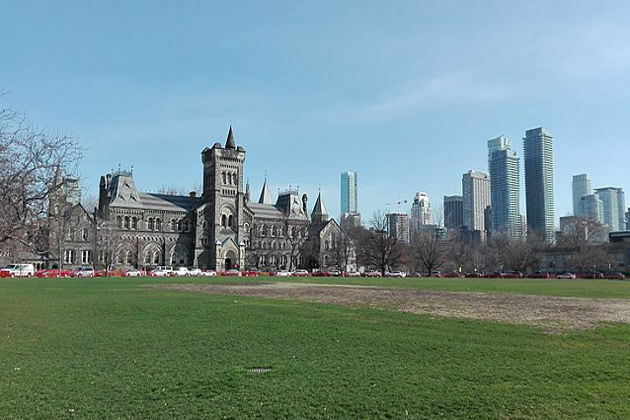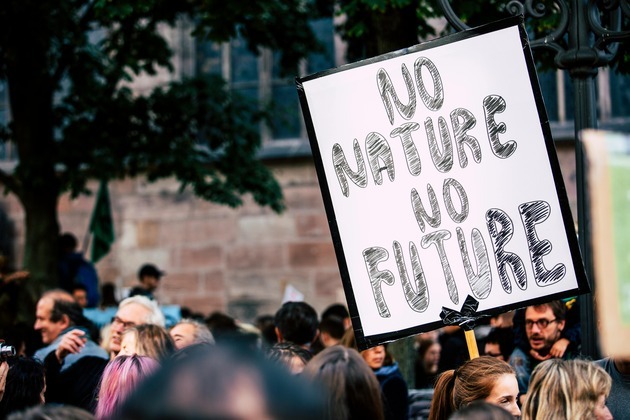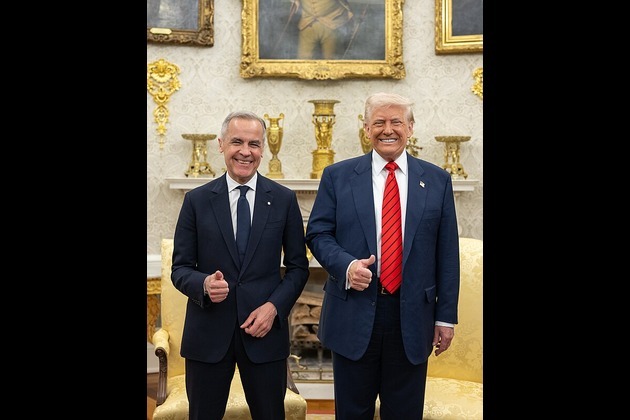Zimbabwe, Chinese Investors Sign $2.8B Metals ParkDeal
Voice of America
23 Sep 2022, 00:35 GMT+10
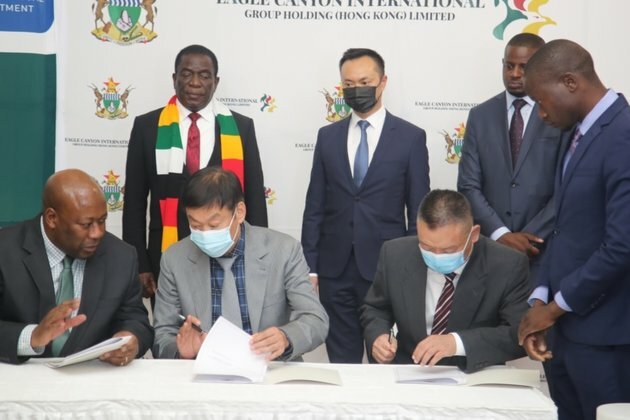
Harare, Zimbabwe - There was a festive mood with music, food and decorations at Zimbabwe's State House last Friday as Chinese investors signed a deal to build a $2.8 billion battery metals industrial park.
Zimbabwean authorities say the lithium, platinum and nickel production will be used to make solar batteries.
President Emmerson Mnangagwa said the project, about an hour's drive northwest of Harare, would help turn around the decline of Zimbabwe's economy.
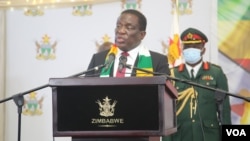
"The mines-to-energy park will augment my government's thrust of value addition and beneficiation of minerals, as well as bolster the crucial role that minerals' value chain plays in the national industrialization agenda,' he said. 'It is set to mark the inception of a lithium ion battery chain in Zimbabwe. It is set to place Zimbabwe among the world's producers of lithium ion batteries."
Zimbabwe's government plans to provide the land and minerals for the park, while the two Chinese companies investing will bring in machinery and needed funds.
Mnangagwa is aiming for a $12 billion mining industry in Zimbabwe by next year.
Lionel Mhlanga, director at Hong Kong Eagle International Holdings, one of the Chinese investors, said the project 'will revolutionize the mining and energy sector of Zimbabwe, ensuring optimum value addition for all minerals extracted locally. Zimbabwe is endowed with most if not all minerals needed in this clean energy drive. Eagle International Investment Holdings and Pacific Goal Investment are partnering with the government of Zimbabwe to set up this industrial park. This multibillion-dollar project, on completion, will have a turnover exceeding $13 billion annually."
But critics note Zimbabwe has announced several multibillion-dollar projects in recent years that fell apart, include mining by Russian investors for platinum and Chinese for diamonds.
The projects that do go forward rarely benefit ordinary Zimbabweans, said opposition lawmaker and rights activist Daniel Molokele.
'The mining model that we have, which favors countries such as China, is a big disadvantage for the poor people of Zimbabwe because the investment method is called extractive mining,' he said. 'It's to the advantage of the investor [rather] than to local communities. So Zimbabwe is not benefiting - at least at common citizen level - until and unless we come up with a mining model that favors local communities, that allows for shareholding and profiting for local communities in all mining investments."
Zimbabwe is home to valuable minerals such as gold, iron, diamonds, lithium, platinum and chrome. But the World Bank says half of Zimbabweans live on less than $1 per day.
Farai Maguwu, the director of the Centre for Natural Resource Governance, a group working to improve governance of Zimbabwe's natural resources, said the metals park deal needs to be transparent and aimed at helping locals, or else Zimbabwe will remain a resource-cursed country.
"If the government is merely looking at creating jobs, then that's a very minimal expectation that we can have out of this project,' he said. 'What we see with the Chinese in Zimbabwe is that everything they are getting, they are taking to China. That's why the influx of Chinese investors in Zimbabwe is not contributing anything, even to liquidity, in our financial sector, simply because the Zimbabweans are not involved in these projects. We are simply giving them access to our resources without any plan."
The battery metals park is expected to be up to 50 square kilometers in size when completed in about three years.
 Share
Share
 Tweet
Tweet
 Share
Share
 Flip
Flip
 Email
Email
Watch latest videos
Subscribe and Follow
Get a daily dose of Hong Kong Herald news through our daily email, its complimentary and keeps you fully up to date with world and business news as well.
News RELEASES
Publish news of your business, community or sports group, personnel appointments, major event and more by submitting a news release to Hong Kong Herald.
More InformationChina
SectionCOVID-19 source still unknown, says WHO panel
]LONDON, U.K.: A World Health Organization (WHO) expert group investigating the origins of the COVID-19 pandemic released its final...
DeepSeek faces app store ban in Germany over data transfer fears
FRANKFURT, Germany: Germany has become the latest country to challenge Chinese AI firm DeepSeek over its data practices, as pressure...
Canadian option offered to Harvard graduates facing US visa issues
TORONTO, Canada: Harvard University and the University of Toronto have created a backup plan to ensure Harvard graduate students continue...
UN climate agency gets 10 percent boost amid global budget cuts
BONN, Germany: Despite widespread belt-tightening across the United Nations, nearly 200 countries agreed this week to increase the...
Starbucks refutes media report on plans to exit China
SEATTLE, Washington: U.S. coffee company Starbucks has said it is not planning to sell all of its business in China, even though a...
How Chinese vapes reach US stores despite import restrictions
LONDON/NEW YORK/CHICAGO: In suburban Chicago, just 15 minutes from O'Hare International Airport, a small customs brokerage quietly...
Business
SectionShell rejects claim of early merger talks with BP
LONDON, U.K.: British oil giant Shell has denied reports that it is in talks to acquire rival oil company BP. The Wall Street Journal...
Wall Street extends rally, Standard and Poor's 500 hits new high
NEW YORK, New York - U.S. stock markets closed firmly in positive territory to start the week Monday, with the S&P 500 and Dow Jones...
Canadian tax on US tech giants dropped after Trump fury
WASHINGTON, D.C.: On Friday, President Donald Trump announced that he was halting trade discussions with Canada due to its decision...
Trump-backed crypto project gets $100 million boost from UAE fund
LONDON, U.K.: A little-known investment fund based in the United Arab Emirates has emerged as the most prominent public backer of U.S....
DIY weight-loss drug trend surges amid high prices, low access
SAN FRANCISCO, California: Across the U.S., a growing number of people are taking obesity treatment into their own hands — literally....
Apple allows outside payment links under EU pressure
SAN FRANCISCO, California: Under pressure from European regulators, Apple has revamped its App Store policies in the EU, introducing...



